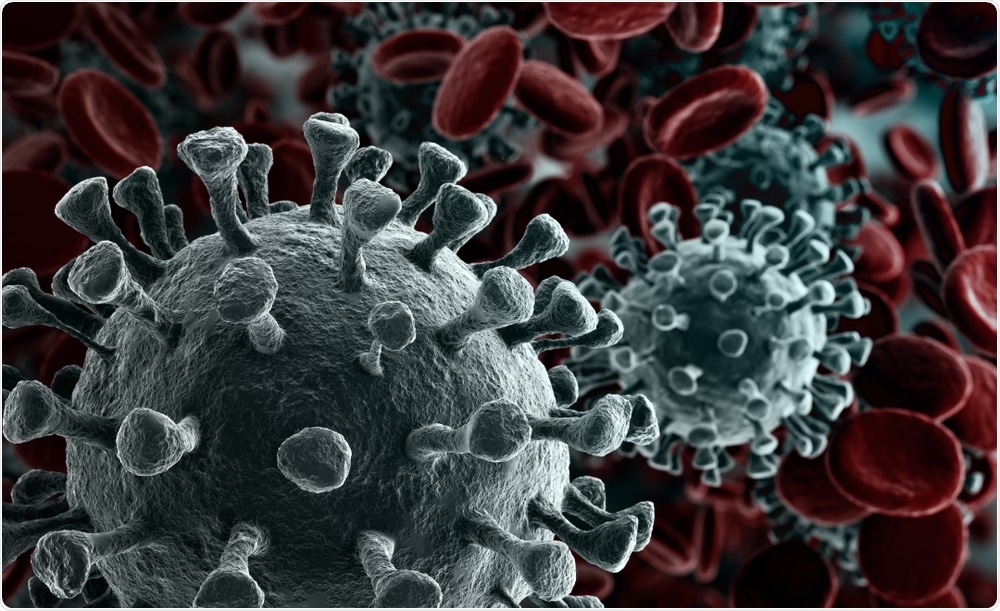Certain coronaviruses can add some genes, that belong to the host they infected, to their genetic pool. In this manner, they can merge and be less noticeable in the immune system.

SARS-CoV-2. Image Credit: creativeneko/Shutterstock.com
This finding was published in the Viruses journal by an Italian research group from the Italian Healthcare Institute (IIS), Institute for Environmental Protection and Research (ISPRA), the Italian Health Authority, and Research Organization for Animal Health and Food Safety in Lombardy and Emilia-Romagna (IZSLER), and the University of Bologna.
The outcome of this study demonstrates that coronaviruses encompass a sophisticated evolutionary mechanism and therefore puts increasing emphasis on the importance of studying wildlife diseases. Research in this field is fundamental to understand the functioning of illnesses that can spread from animals to humans so that we can efficiently manage ecosystems and provide a balance between the species inhabiting them.”
Mauro Delogu, Study Author and Researcher, University of Bologna
The research team learned this fact while they were studying the coronaviruses detected in European hedgehog specimens (Erinaceus europaeus). This strain was classified as EriCoV by the researchers. The viruses are part of the same strain of Beta-CoV that is responsible for causing MERS and COVID-19 infections. There is no proof, however, that these viruses can transmit to human beings.
The coronaviruses detected in hedgehogs can steal a gene, called CD200, belonging to the host. When paired with its receptor, the CD200 gene prevents an excessive inflammatory reaction. By inserting the CD200 gene, the virus can suppress the host’s immune defense.
Such incidents have never been seen before in coronaviruses. Through this evolutionary mechanism, coronaviruses can affect the duration of infection and thus extend the time needed to remove the virus, ultimately resulting in chronic infections. This mechanism proves beneficial to the virus, as it multiplies its potential to both propagate and spread due to a particular evolutionary technique.
These results pave the way for further investigations into the ability of coronaviruses of interfering with the inhibitory signals of immune cells. In this way, coronaviruses can disguise themselves so that it is harder for the immune system of the host to detect, recognize and destroy them.”
Mauro Delogu, Study Author and Researcher, University of Bologna
Source:
Journal reference:
De Sabato, L., et al. (2020) Can Coronaviruses Steal Genes from the Host as Evidenced in Western European Hedgehogs by EriCoV Genetic Characterization?. Viruses. doi.org/10.3390/v12121471.